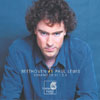Beethoven Piano Sonatas Nos 16-18, Op 31 Nos 1-3
An epic Beethoven journey begins and this strong start promises well
View record and artist detailsRecord and Artist Details
Composer or Director: Ludwig van Beethoven
Label: Harmonia Mundi
Magazine Review Date: 13/2005
Media Format: CD or Download
Media Runtime: 74
Mastering:
Stereo
DDD
Catalogue Number: HMC90 1902

Tracks:
| Composition | Artist Credit |
|---|---|
| Sonata for Piano No. 16 |
Ludwig van Beethoven, Composer
Ludwig van Beethoven, Composer Paul Lewis, Piano |
| Sonata for Piano No. 17, 'Tempest' |
Ludwig van Beethoven, Composer
Ludwig van Beethoven, Composer Paul Lewis, Piano |
| Sonata for Piano No. 18, 'Hunt' |
Ludwig van Beethoven, Composer
Ludwig van Beethoven, Composer Paul Lewis, Piano |
Author: Bryce Morrison
Paul Lewis launches his cycle of the 32 Beethoven sonatas with a triptych of richly varied middle-period masterpieces. A more auspicious start would be hard to imagine. True, others may characterise the first and third sonatas more playfully or show themselves more obviously attuned to Beethoven’s scintillating wit and whimsy, but Lewis’s unalloyed musicianship and overall mastery are worth their weight in gold; every bar declares his calibre and generosity of spirit.
Sometimes his warmth and flexibility suggest Beethoven seen, as it were, through Schubert’s eyes (the finale to Op 31 No 1) and he often suggests a darker, more serious side to the composer’s laughter and high jinks. But he plays Beethoven’s humorous afterthought at the close of the Op 31 No 1’s Allegro vivace as to the manner born and his presto coda to the finale becomes a joyous chase.
His way with the so-called Tempest Sonata is a reminder, too, of his outwardly relaxed mastery, quite without a sign of a skewed or telescoped phrase and with page after page given with a quiet but superbly focused intensity. His Adagio is gravely processional, his finale (that agitated, teasingly enigmatic moto perpetuo) acutely yet subtly and unobtrusively characterised. Again, while others may offer a swifter trajectory through No 3’s finale, Lewis’s wish to give substance to every note carries its own unswerving conviction.
Harmonia Mundi’s sound is excellent and I can scarcely wait to hear the rest of this deeply serious and sensitive young pianist’s epic undertaking.
Sometimes his warmth and flexibility suggest Beethoven seen, as it were, through Schubert’s eyes (the finale to Op 31 No 1) and he often suggests a darker, more serious side to the composer’s laughter and high jinks. But he plays Beethoven’s humorous afterthought at the close of the Op 31 No 1’s Allegro vivace as to the manner born and his presto coda to the finale becomes a joyous chase.
His way with the so-called Tempest Sonata is a reminder, too, of his outwardly relaxed mastery, quite without a sign of a skewed or telescoped phrase and with page after page given with a quiet but superbly focused intensity. His Adagio is gravely processional, his finale (that agitated, teasingly enigmatic moto perpetuo) acutely yet subtly and unobtrusively characterised. Again, while others may offer a swifter trajectory through No 3’s finale, Lewis’s wish to give substance to every note carries its own unswerving conviction.
Harmonia Mundi’s sound is excellent and I can scarcely wait to hear the rest of this deeply serious and sensitive young pianist’s epic undertaking.
Discover the world's largest classical music catalogue with Presto Music.

Gramophone Digital Club
- Digital Edition
- Digital Archive
- Reviews Database
- Full website access
From £8.75 / month
Subscribe
Gramophone Full Club
- Print Edition
- Digital Edition
- Digital Archive
- Reviews Database
- Full website access
From £11.00 / month
Subscribe
If you are a library, university or other organisation that would be interested in an institutional subscription to Gramophone please click here for further information.




